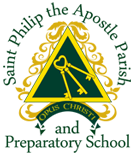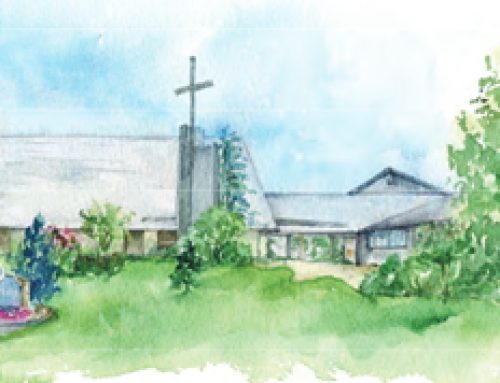PENTECOST
FROM THE PASTOR’S DESK
My Dear Parishioners:
We cannot see the Holy Spirit. So, throughout the centuries writers and artists have struggled to come up with an adequate image to represent the Spirit. The evangelists had an idea. At Jesus’ baptism they represented the Spirit descending upon Him in the form of a dove. The image of the dove has been widely accepted. Most works of Christian art that represent the Spirit as a white bird floating in the sky. Throughout the Middle Ages there was a custom that on the feast of Pentecost hundreds of white doves would be released from church steeples. This custom continued until people realized that the cleanup for the doves was as extensive as its symbolism. The dove is graceful, gentle, seductive. These are qualities of God’s Spirit, but they certainly are not all of them. The dove is an incomplete image, too sweet and sentimental.
The Irish had another idea. In the old Celtic tradition, the Holy Spirit was not represented as a gentle dove. It was pictured—get ready for this-as a wild goose. Now geese are very different than doves. They are uncontrollable and their honk is wild and obtrusive. They have a habit of biting those who try to contain them. They always travel in flocks and their attitude is such that farmers routinely use geese as a kind of watchdog. Therefore, the Celts thought that the goose would be a good symbol for God’s Spirit. For the Spirit comes into our lives not in quiet complacency but demanding to be heard. Its message is not attractive to many. It calls us to respect one another and to travel as a group. And those upon whom the Spirit descends become noisy, passionate, courageous people who are guardians of the gospel.
Pentecost is the wild goose of a St. Patrick, who risked his life to evangelize the Emerald Isle. It is a Francis Xavier, who traveled to China and died there to spread the gospel. It is a Dorothy Day, who was taken to prison as she voiced justice for the poor. The wild goose of Pentecost is the whistle blower, the Meals on Wheels provider, the hospital visitor, mothers organizing against drunk driving, college students giving a year of their life in St. Paul’s Outreach, spreading the gospel on college campuses. Those on whom this brash Spirit descends become noisy advocates for justice: advocating health care reform, running drug rehabilitation programs, helping people find jobs, trying to make a difference in the world. When those who are possessed by this Spirit see big corporations such as Nike profiting hundreds of millions of dollars on running shoes and realize that those shoes are being produced by poor women in Vietnam who receive a handful of change for an 18-hour day, they babble “That’s not right.” The Spirit of God does not come into our world to preserve the status quo. God’s Spirit insists that wrongs must be righted; that justice must be done.
So, what would happen to us if we opened our hearts and let this wild goose (not Wild Turkey!) of the Spirit in? We might find the courage to face problems in our marriage, insisting that dialogue happen, seeking counseling, demanding that things change. We might find the strength to break off destructive relationships and to stop habits that are degrading our worth and integrity. We might push our way into situations where people are being demeaned because of their race, creed, or sexual orientation and insist that there be fair treatment for all. We might stop fattening ourselves with wealth and power and instead use the things that are ours for the betterment of others.
We need to claim this wild and uncontrollable goose because it is all too easy to domesticate God’s Spirit. It is all too easy to live day to day seduced by the quiet, lulling, cooing of our own comfort. Occasionally, we need to hear that wild honk that calls us back to the original message of Jesus which demands responsibility and justice, which insists that we stand up for ourselves and for others. We must be startled by that Spirit squawk that reminds us that whatever we do for the least of our brothers or sisters we do for Christ.
Overall, I think the Celts had it right. Pentecost is a Feast of Geese, wild, dirty, loud geese, honking the gospel, biting those who would oppress the weak, insisting that we travel together in worship and in service; geese that challenge our comfortable Christian coziness and remind us that we have dignity and that we must fight for the widow and the orphan; geese whose song expresses the truth so well voiced in the Letter of James that “faith without works is dead.”
Peace,
Fr. Monteleone
To read complete bulletin click here



